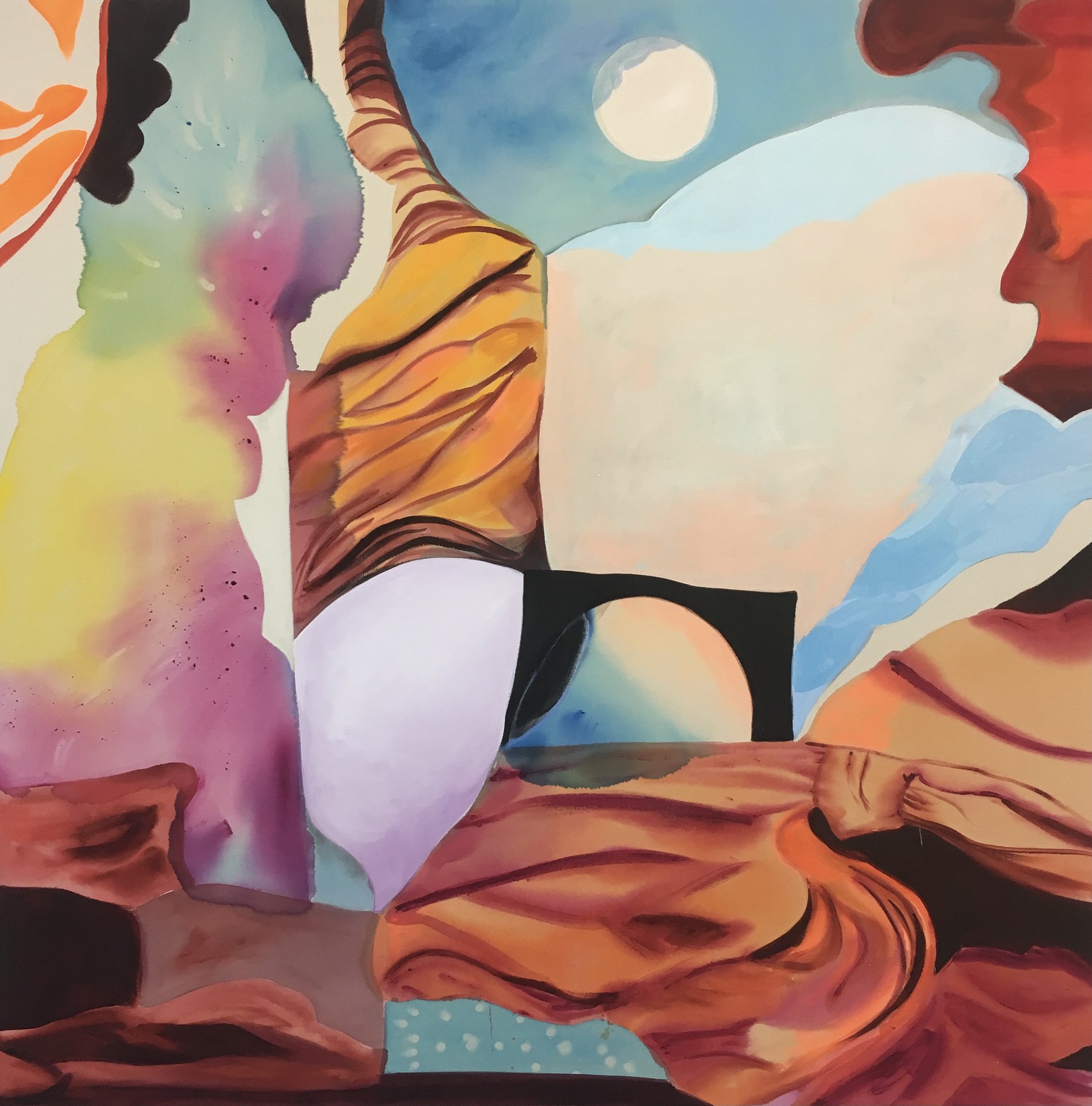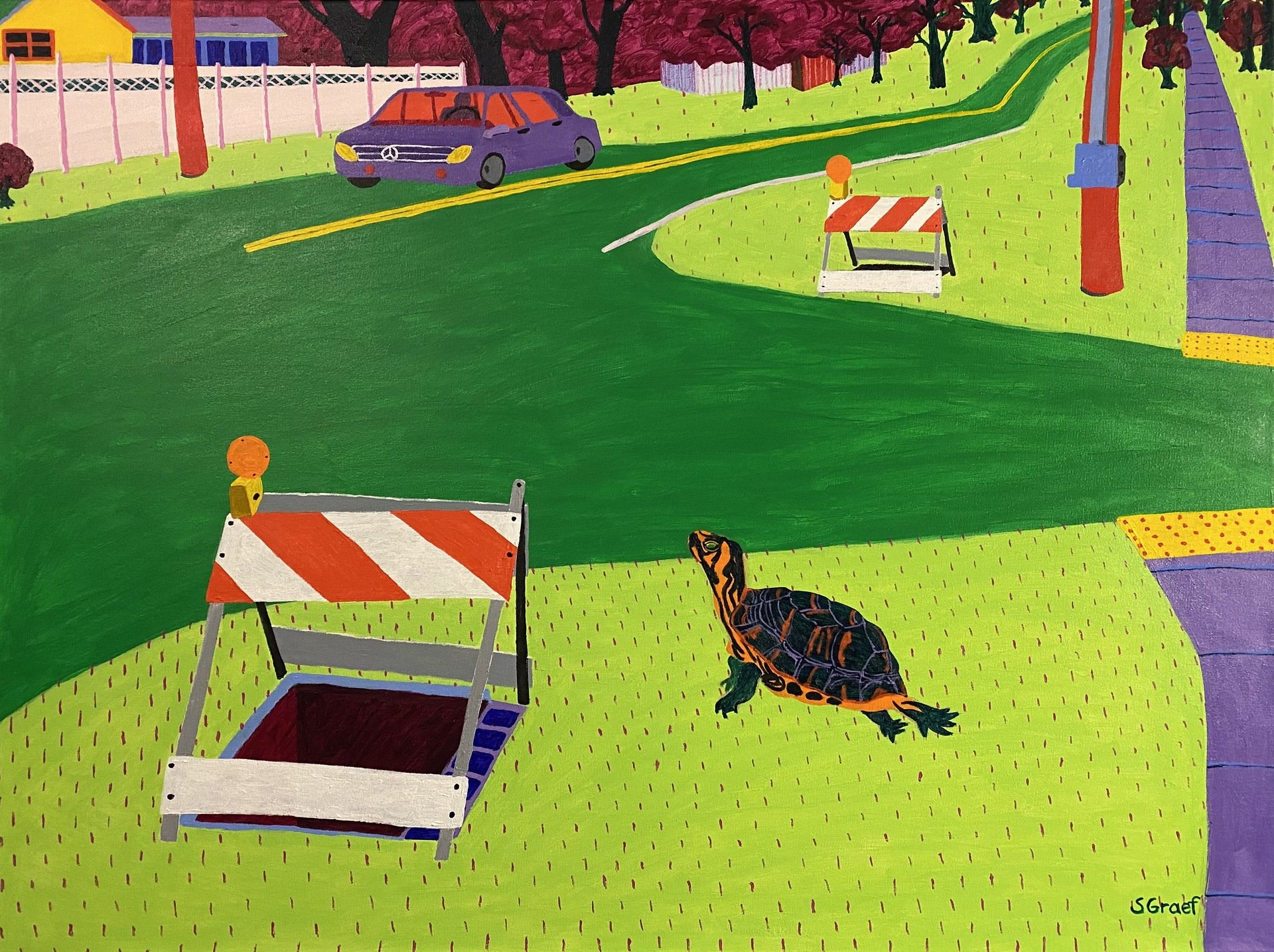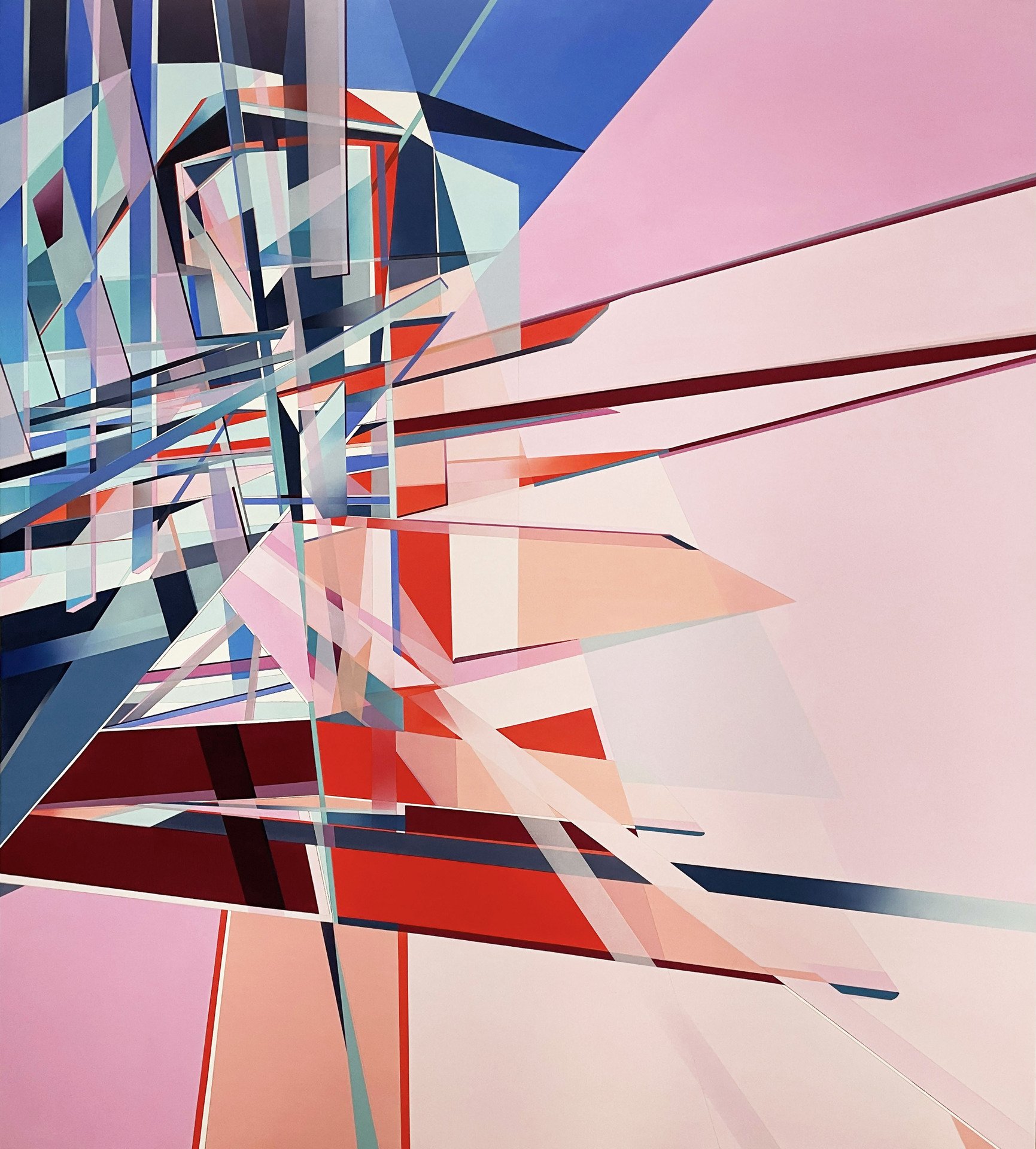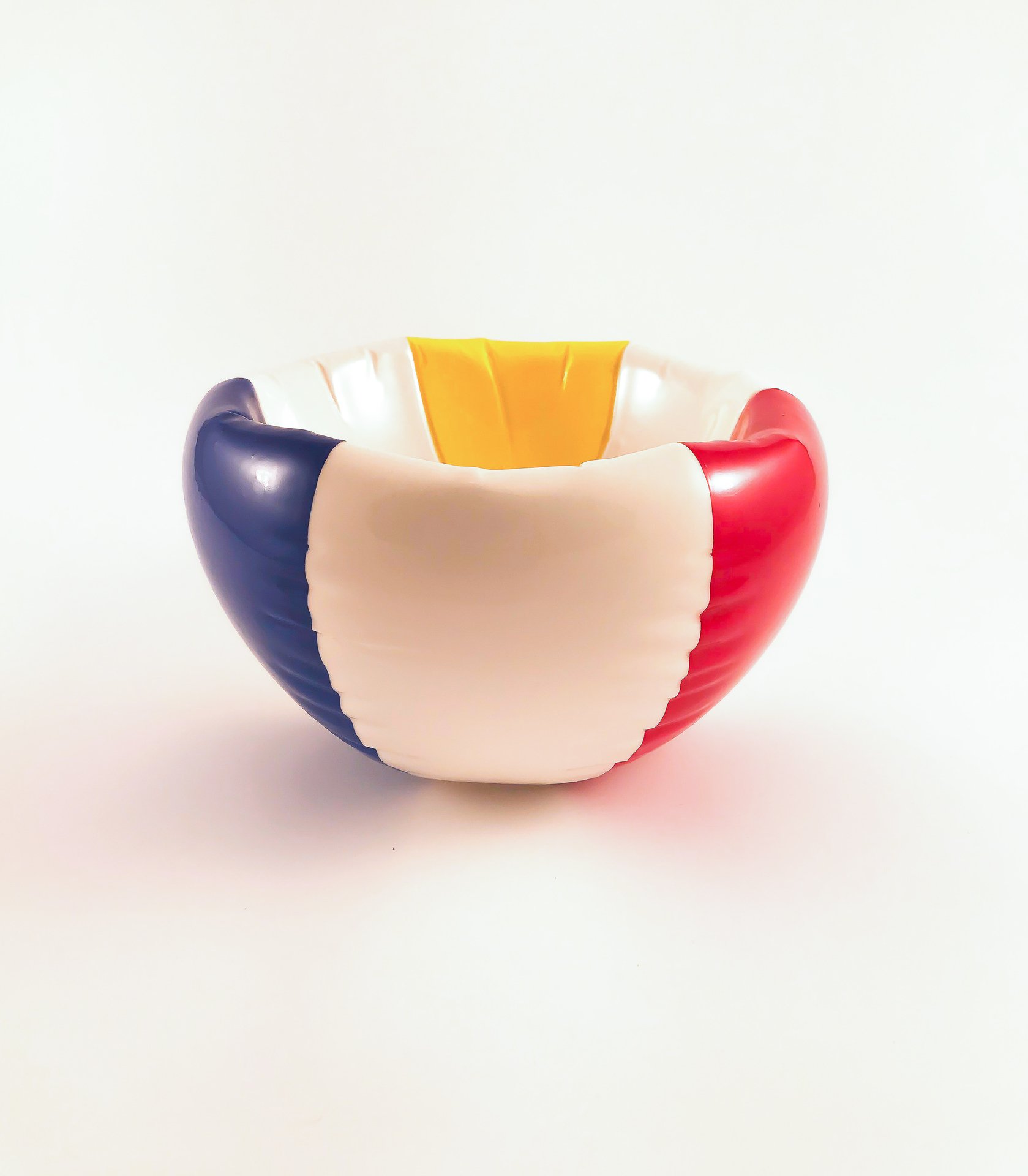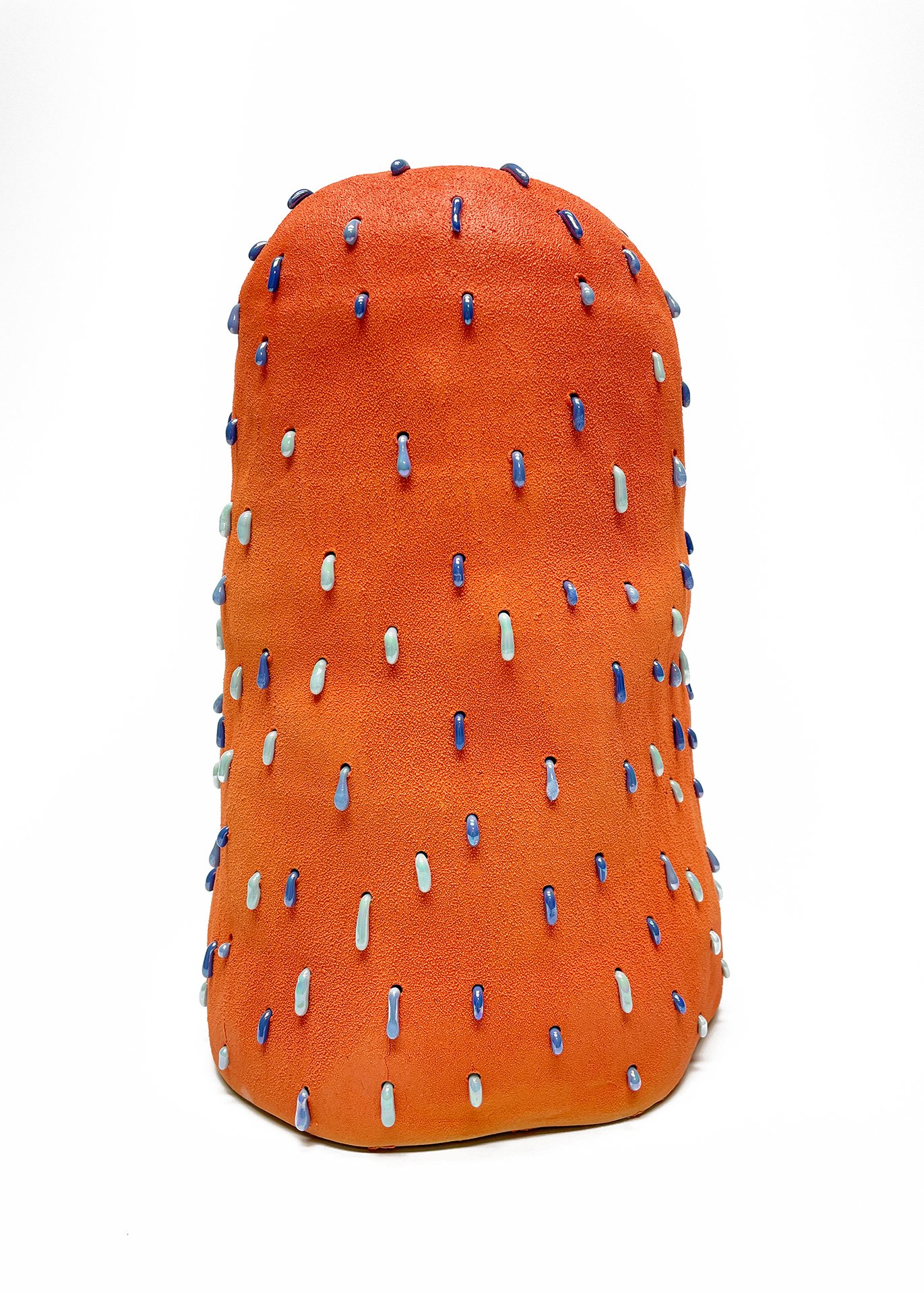Contemporary Color
An Online Exhibition
Juried by Chloe Wyma
What is the relationship between color and contemporaneity? It’s a tough question, and one that will not be answered programmatically in this exhibition. That said, we might begin to understand color in the present by briefly turning to the past, or rather to a schematic narrative of color’s rise and precipitous fall in the last century. From the synesthetic fugues of expressionism to the apophatic theology of the first monochromes, modernism sought to liberate color from its descriptive function, to distill its ontological essence and activate its spiritual power. Later artists, the story goes, renounced such utopian hopes for color, which, they concluded, could not be dissociated from the technologies of industrial production, the seductions of the commodity form, or the spectacle of mass culture. No longer a universal language or a vehicle of “pure feeling,” color was understood to be indexical, coded, and signifying.
How do artists working today carry on from this lapsarian narrative—partial and problematic as it maybe be? The artists gathered here treat color as a fact of the material world and a matter of deep personal significance. They limn its intimate relationship to memory and embodiment, its valences apropos race, gender, and class, and its imbrication in systems of digital mediation, artificial intelligence, and surveillance. They draw their palettes from the imagination, from nature, from the refuse of mass consumption, and from the chasmic archive of the internet. Some artists depict everyday life, while others conjure otherworldly landscapes. Some are preoccupied by the materiality of color, others by optical effects of shine and refraction, others still by atmospheric potential of opacity and shadow. In their artist statements, many describe a deep sense of pleasure and solace they take in color, especially during these difficult past two years. In the idiosyncratic clusters of works below, distinctions between art and craft, painting and sculpture, abstraction and figuration, avant-garde and kitsch are treated with irreverence, allowing formal coincidences and shared conceptual concerns to surface. I hope that, taken together, they provisionally map some approaches to contemporary color: no longer innocent, but still full of grace.
-Chloe Wyma
All following commentaries have been written by Chloe Wyma
Lesley Bodzy
Conceal The Pain of Adolescence
acrylic mixed with gel, Peruvian powdered pigments, nails
31" x 32" x 1"
$750.00
Nancy Ivanhoe
Wall Sculpture (Violet)
Screen mesh, acrylic paint
45" x 40" x 6"
$3,000.00
Gail Shaw-Clemons
I'm Done #8
Monotype/3-D Print on 100 rag paper
15" x 11" x 3"
$1,400.00
Color is both material and support in Lesley Bodzy’s Conceal the Pain of Adolescence, 2021, comprising draped skins of marigold and periwinkle paint. The play of complementary hues echoes across the ethereal planes of Nancy Ivanhoe’s mesh wall sculpture, the colored rag paper of Gail Shaw-Clemons’s three-dimensional monotype print, and Karen Benton’s twisted ribbons of recycled yoga matting, which pastiche contemporary wellness culture and the flaccid antiforms of postminimalism.
Karen Benton
Always Searching
Acrylic on repurposed timber, yoga mat, board
22” x 11” x 9.5”
$950.00
Clare Samani
Slick
Ceramic, Fiber
27" x 8"
$5,000.00
Megumi Harada
chaotic ambiance
mixed media fiber
7" x 5" x 2.5"
$750.00
Erin Juliana
Plica
Fabric and poly-fil on a metal grid frame
8" x 19" x 2"
$675.00
Erin Juliana
Periphery
Fabric and poly-fil on a metal grid frame
12" x 16" x 2"
$650.00
Clare Samani’s pendant daffodil-yellow fiber sculpture evokes the shape of a mutton sleeve, referencing the feminized labor of garment construction and gendered self-fashioning through an oblique poetics of texture, color, and form. Childhood paraphernalia accumulates in an undeniable matrix of irony and nostalgia in Megumi Harada’s chaotic ambiance, while Erin Juliana enframes gynomorphic compositions of stuffed fabric components within metal grids, suggesting architectures of support or confinement.
John Ralston
Kels Neap Tide
Paint, Gypsum Powder, Resin
18" x 14" x 5"
$1,200.00
Chloe Abbadessa
City Bloom
Chromepaint on quilted fabric, cement on canvas
7.25" x 5" x 1"
$500.00
Reineke Hollander
The Promised Land
ikea bag, textiles, sandpaper, sewing
39" x 20" x 0.5"
$2,500.00
John Ralston
Shifting Plates of Teschak
Paint, Gypsum Powder, Resin
14" x 15" x 6"
$1,200.00
John Ralston
Via Mocht
Paint, Gypsum Powder, Resin
23" x 15" x 4"
$1,300.00
John Ralston’s painted resin reliefs evoke intergalactic topographies and geologic timescales beyond human apprehension. Reineke Hollander draws on a more familiar landscape of consumerism and disposability, repurposing a blue Ikea bag as a ground for hand-sewn appliques. Chloe Abbadessa, meanwhile, draws on Appalachian craft traditions in City Bloom, which gathers polychromic fabric scraps and cement on an intimately scaled canvas.
Helen Bishop-Santelli
Finding Self
Cast Glass
7" x 14" x 5"
$4,000.00
Shocks of green, yellow, and blue enliven this cast glass sculpture by Helen Bishop-Santelli, who here employs traditional artisanal methods to reconceive the myth of Narcissus as a journey of self-discovery. Below, Nate Ditzler’s glazed ceramic Beach Bowl, a hard form that appears soft at first glance, confounds sight and touch with deflationary, Pop-inflected humor.
Nate Ditzler
The New Good Old Days_
Ceramic, underglaze, glaze
7.5" x 12.5" x 12.5"
$1,500.00
Simone DiLaura
Little Swimmers
Oil on canvas
8" x 10" x 1"
$1,500.00
Nate Ditzler
The New Good Old Days_
Ceramic, underglaze, glaze
7.5" x 12.5" x 12.5"
$1,500.00
Simone DiLaura
Under VI
Oil on canvas
8" x 12" x .75"
$4,500.00
Kwanza Humphrey
Leronta
Mixed Media
12" x 9"
$500.00
Margaret Brown
Like a Rolling Bone
Oil on Canvas
58" x 64" x 1.5"
$15,000.00
Catherine Bennaton
Pink Moment
Acrylic on canvas
30" x 40" x 2.25"
$1,900.00
Tender and discomposing, Simone DiLaura’s young swimmers are fragmented and abstracted by broken light on the water’s surface; you can almost feel the sting of choline in her Under VI. Color likewise lends itself to keenly observed naturalism in the portraiture of Kwanza Humphrey and the domestic tableaux of Margaret Brown, who here portrays the mundanities of pandemic life with subtle comedy. Below, Catherine Bennaton’s roiling expressionism and Sue Graef’s storybook figuration present varying approaches to color in contemporary landscape painting.
Sue Graef
Look Both Ways
Acrylic on stretched canvas
30" x 40" x 1.5"
$3,000.00
Adam Brown
The Sad Demise of P-64
Acrylic and oil on canvas
11" x 14"
$300.00
Adam Brown
Two Minutes to Midnight
Acrylic and oil on canvas
14" x 11"
$225.00
Adam Brown’s deceptively folkloric paintings deploy color to expressive effect, mourning the loss of biodiversity amid clear and present climate emergency. The Chagallesque Two Minutes to Midnight depicts the incardine pageantry of the Red Rebel Brigade, an activist performance group that marches with the global environmental movement Extinction Rebellion. Above it is an epitaph for a Los Angeles-area mountain lion known by the code name P-64. Locally renowned for crossing the 101 and 118 freeways a combined forty-one times, the “The Culvert Cat,” as he was also called, perished in 2018’s Woolsey Fire, a consequence of the warming of our planet.
Demetrius Wilson
Familiar Faces
Oil on Canvas
48" x 36" x 2"
$3,000.00
Color partially elides figure and ground in Demetrius Wilson’s iterative portraits of blind-folded faces. Rendered in gestural strokes and repeated across a 3X3 grid, these unseeing and partially obscured visages undercut portraiture’s associations with individuation and visibility. Below, Timon YC I’s tenebrific underworlds and Mike Ryczek’s pink nocturne, painted in oil from a screenshot of surveillance footage captured in Rockaway, Queens, evoke the velvety abstraction of the city after dark, while the chartreuse glow of Thomas Knight’s The Green Fire illuminates an atavistic ritual.
Timon YC I
Rainy Day
Oil On Canvas
60" x 46" x 1.5"
Timon YC I
Spring Dream
Oil On Canvas
60" x 46" x 1.5"
Mike Ryczek
ROCKAWAY, QUEENS, NY / 8.17.20 / 1:24 PM
Oil on wood panel
12" x 17.5" x .75"
$1,300.00
Timon YC I
Lake Of Insomnia
Oil On Canvas
60" x 40" x 1.5"
Thomas Knight
The Green Fire
Oil on Canvas
48" x 60" x 2"
$8,000.00
Marna Shopoff
Imaginary
Oil on Canvas
72" x 64" x 2"
$16,500.00
Kenneth Millington
the ellipsis of battle
Oil on canvas
48" x 36" x 1.5"
$5,000.00
Cherisse Alcantara
Elevator
Oil on linen
20" x 16" x 1.5"
$2,000.00
The iridescent and prismatic surfaces of Cherisse Alcantara, Mara Shopoff, and Kenneth Millington produce imaginary abstract space while remaining anchored in our technomaterial reality. Below, twenty-first century artificial intelligence and modernist color theory playfully converge in Anne Spalter’s “AI Homage to Hans Hoffman” series. The artist instructed a generative adversarial network, or GAN, to produce hybrids of two image sets: photographs of airplanes and works by the celebrated German-born painter and pedagogue Hans Hoffman. The resulting editions disassociate color from notions of individual expression and prompt reflection on the role of machine-learning in art.
Anne Spalter
AI Homage to Hans Hoffman
Ultra Chrome ink on Hahnemuhle Photo Rag
22" x 16"
$1,500.00
Anne Spalter
AI Homage to Hans Hoffman 5
Ultra Chrome ink on Hahnemuhle Photo Rag
22" x 16"
$1,500.00
Antoinetta Grassi
Flip Flap Freight
Oil on canvas
48" x 48" x 1.5"
$6,000.00
Ara Osterweil’s envisions a phantasmagorical landscape of mysterious vapors, flows, and rock formations in Flaming Moon. Its Martian hues resonate in Maryalice Caroll’s biomorphic mounds of glazed ceramic. Punctured with oozing blue orifices, they call to mind the artifacts of an alien civilization, while Antionetta Grassi’s translucent geometric and architectonic compositions suggest blueprints for worlds to come.
Ara Osterweil
Flaming Moon
Acrylic on canvas
72" x 72" x 1.5"
$11,000.00
Maryalice Carroll
Being Being
Ceramic, glaze
14" x 7" x 7"
$4,000.00
Maryalice Carroll
Being
Ceramic, glaze
7" x 12" x 6"
$3,200.00
Antoinetta Grassi
Escape Hatch
Oil on canvas
60" x 60" x 1.5"
$8,000.00

